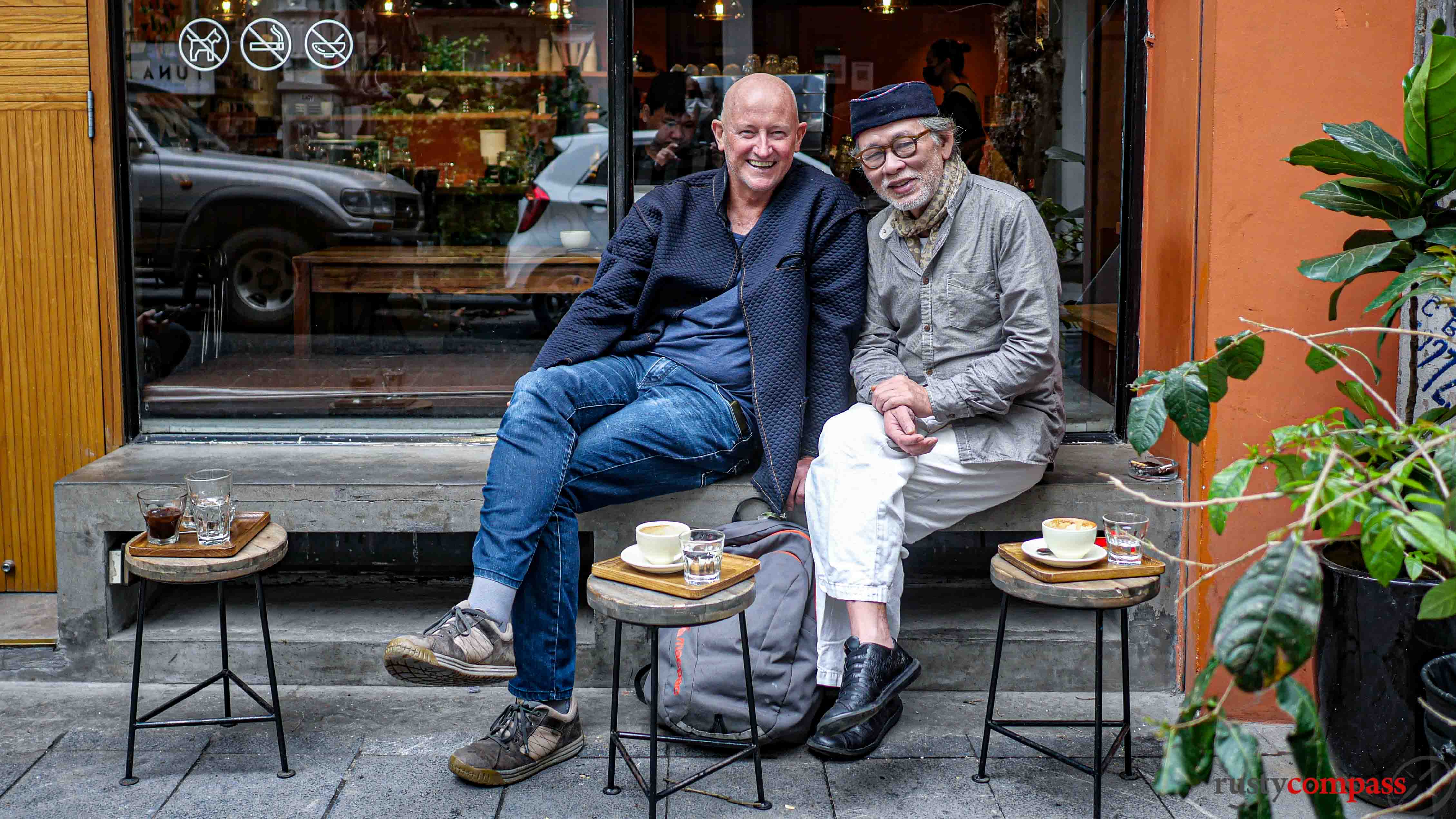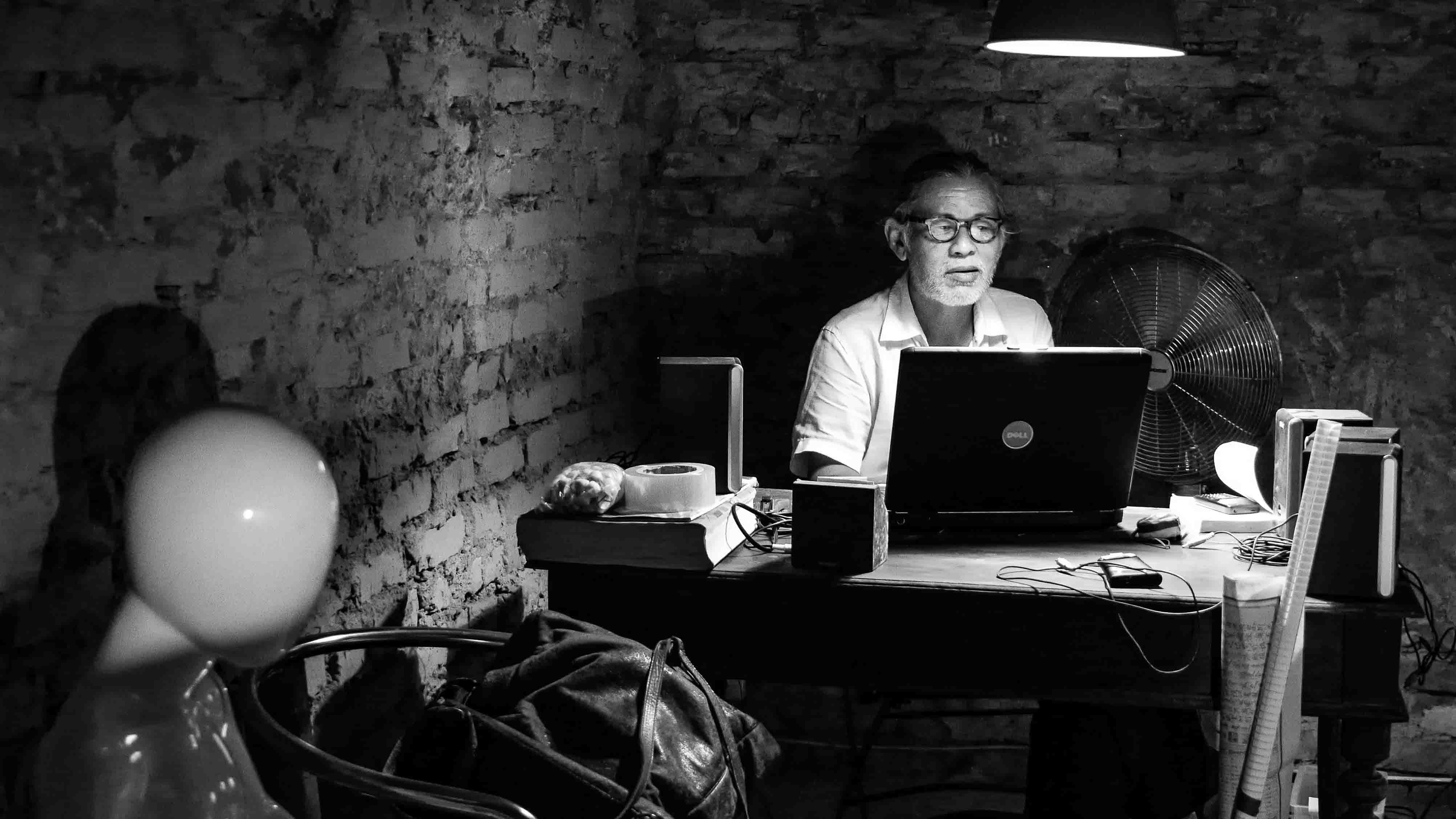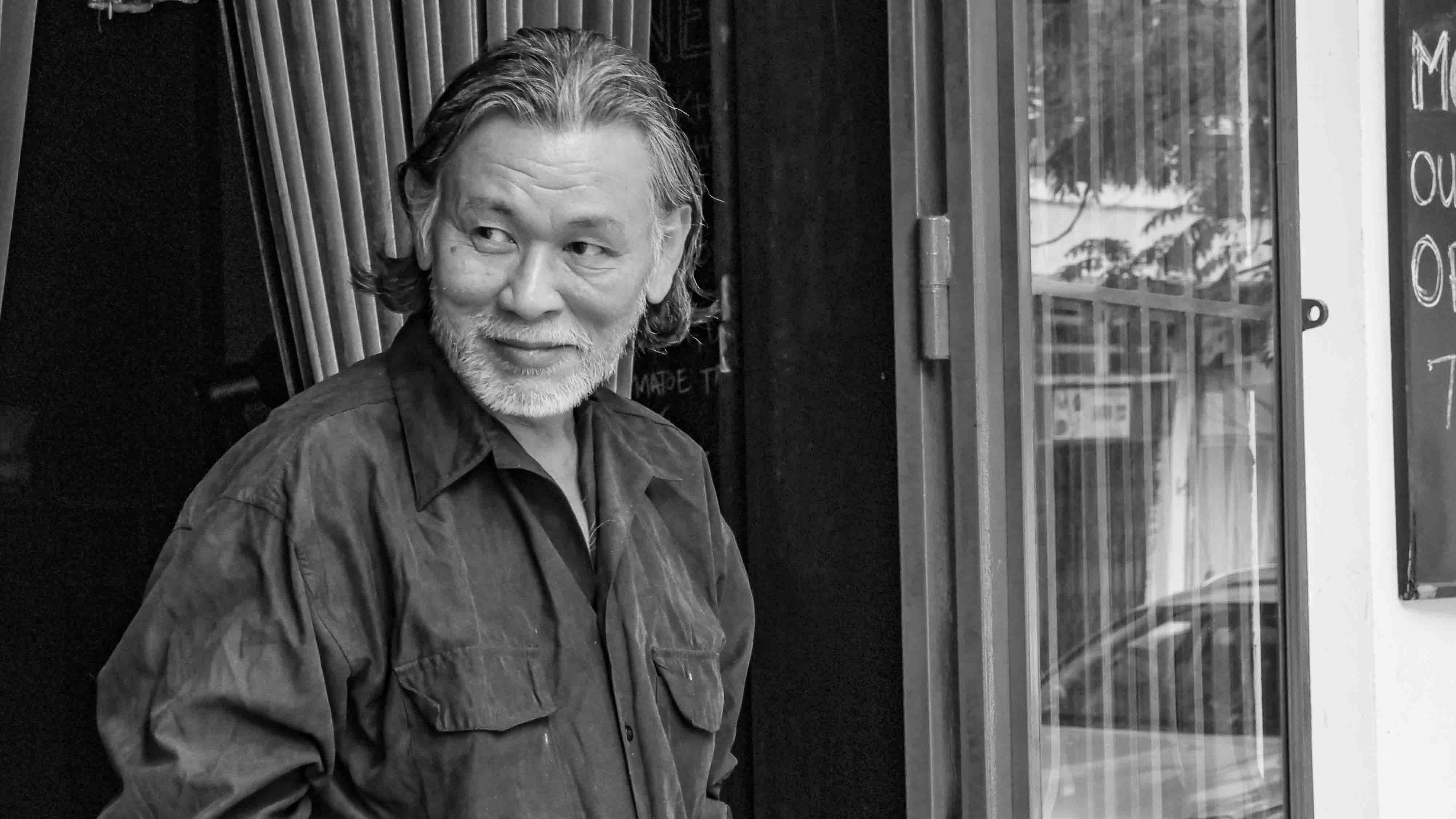Monumental upheaval has been such a feature of Vietnamese lives for so long, that in Vietnam, exceptional lives are unexceptional. They’re commonplace. And Vietnamese people carry their extraordinary family stories around with great modesty.
A small number of Vietnamese people become storytellers. Nguyen Qui Duc, who passed away in November, was one such storyteller. He was a trailblazer, giving voice to Vietnamese refugee stories in the United States from the 1980s before venturing back into contemporary Vietnamese literature in the land of his birth in the 2000s. Duc also mentored other Vietnamese writers.
Thousands of people around the world, touched by Duc the artist and Duc the man, are grieving his recent loss. He was 65.
Duc was a dear friend, a teacher and a man of exceptional talents.
There was so much that was remarkable about Nguyen Qui Duc. There were times when I wondered whether I was more groupie than friend?

Photo: Supplied Meeting Duc after the pandemic in 2022
Being able to write and connect with audiences in Vietnamese, English and French, was enough to leave a mono-lingual Australian in awe. But over time, I became aware of the broader creative powerhouse that drove Duc. He was a man with a sharp eye for design and for concepts. He was a painter. He was a detail guy - every small thing was in its place. His bar Tadioto, in its various incarnations over the years, showcased his design powers. You can still see it today in Hanoi - and we’re all hopeful Tadioto will survive Duc’s passing.
It’s very possible that Duc’s creative output was restrained only by the sheer breadth of his capability. There was always so much in the creative pipeline. How to channel it?
I shot this video with Duc in 2013
Behind Duc’s boundless creative talent was a remarkable life story. This is how I first connected with him.
I spent the first twenty years of my life in Vietnam devouring every piece of history I could get my hands on. That mostly meant Vietnam War history, written by foreign men focused on foreign, mainly American, folly. These men wrote great books but knew little about Vietnam and the Vietnamese people. At some point I became frustrated with that.

Photo: Mark Bowyer Nguyen Qui Duc in his writer's bunker.
In the 1990s, I was meeting extraordinary Vietnamese people every day from all sides of the conflict and hearing extraordinary Vietnamese stories. I was coming to know of different Vietnam stories - not represented in international Cold War geopolitical analysis. I had read enough about McNamara, LBJ, Kissinger, Nixon, John Paul Vann and the rest . I wanted to know more about Vietnamese people.
In the mid 2000s I read Duc’s book Where the Ashes Are. I became an admirer, long before I met him.
During the Tet Offensive of 1968, in Hue, Duc, a 10 year old boy, witnessed the capture of his father, a senior South Vietnamese civilian official, by Viet Cong forces. Duc then spent days trapped in the horror of the Battle of Hue, one of the most brutal of the American War. Death all around, his family knew nothing of the fate of his captured father.
Duc’s father survived Tet 1968 and was held until the 1980s in closed Communist northern Vietnam - the most senior South Vietnamese official to be captured in the war.
In 1975, the Vietnam War ended. Duc’s family was broken by the long imprisonment of his father. Duc fled alone to the United States. His family was slowly reunited there. It was still years before he was reconnected with his father,
Where the Ashes Are tells the family story. It’s more than a war story. It also gives readers an insight into the complicated politics of the Vietnamese refugee communities of the late 1970s.
By 1975, the defeated South Vietnamese regime that the US had supported in war, had few friends around the world - including in the US. The first wave of Vietnamese refugees from that time were reminders of US failure. Duc felt rootless. He was deeply Vietnamese living in a foreign land. He became a journalist and his storytelling began.

Photo: Mark Bowyer Nguyen Qui Duc. The man behind Tadioto.
I have found the stories of Where the Ashes Are so compelling that it's one of the books we use on our Vietnam by the Book tours over at Old Compass Travel.
In 2006, Duc moved to Hanoi. It seemed an odd choice. His Vietnamese-American friends suggested Saigon, a city where he had lived before 1975, as a suitable place to reconnect with the country of his birth. That wasn’t for Duc. And nothing he did was accidental. He was in the city that held his father captive for more than a decade.
Duc made Hanoi home and became an important part of the city’s creative fabric. He was embraced by Hanoi’s vibrant arts community as well as international residents and visitors.
Duc’s creative powers included the creation of fantastic bars and event spaces. Tadioto became a magnet for artists and a place of talks, music and community. Duc was a wonderful host and a connector of people. Tadioto was a place to meet and talk with fascinating people from Vietnam and around the world.
We were honoured to host several talks by Duc at The Old Compass Cafe in Saigon. And I shot several videos that featured him over the past decade. Most of the footage has never seen the light of day. I’ll need to sift through it.
Duc was a charismatic speaker and one of the most photogenic people I have met.
Hanoi has lost someone truly special. Duc effortlessly gave so much to the city. He’s left us decades before we expected to face this pain.
Thanks for a generous, creative life Duc oi!





There are no comments yet.